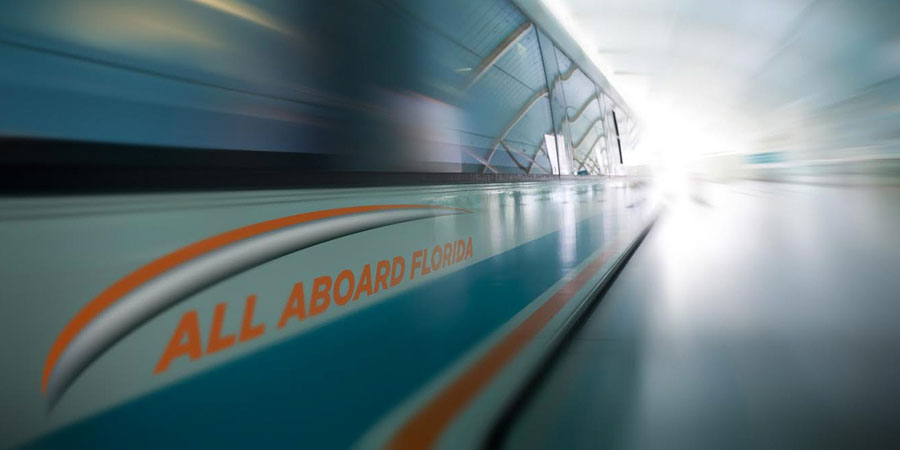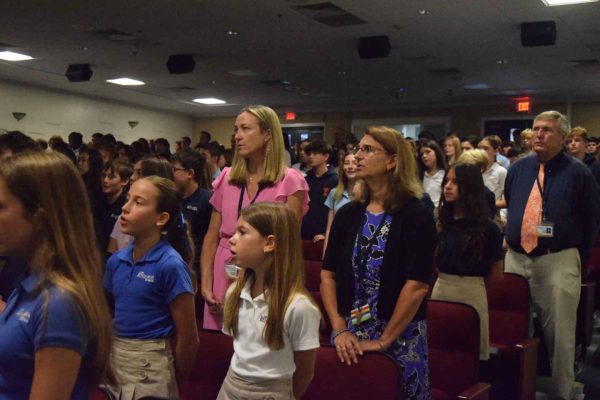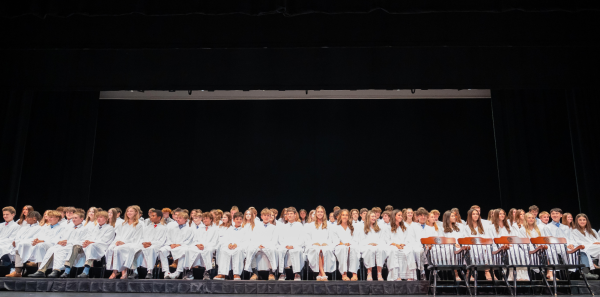Is Florida All Aboard?
Plans are moving forward on a new passenger train offering travel from Miami to Orlando.
All Aboard Florida promises quick, hassle-free service from Miami to Orlando.
When it comes to trains, most students at The Benjamin School and residents of South Florida are not in favor of them for many reasons. Many people get woken up in the middle of the night by the trains, and they delay students and adults as they try to get to school and work. However, a new high-speed rail system is getting some South Floridians interested in train travel. “All Aboard Florida” (AAF) is an intercity passenger rail project being developed by Florida East Coast Industries. According to the project’s website (allaboardflorida.com), this project plans to have a high-speed rail system connecting downtown Miami and Orlando International Airport in approximately 3 hours with intermediate stations in West Palm Beach and Fort Lauderdale. The Miami to West Palm Beach route will begin passenger operations in 2016 and Miami to Orlando in early 2017. None of the money funded for this project comes from taxpayer dollars, and no federal or state grants will be requested. The whole rail system will be privately operated and owned by Florida East Coast Industries. According to the project’s website, its goal is to “provide Floridians and visitors a viable transportation alternative to congested highways and airport terminals.”
The construction on the southern segment of the railroad from Miami to West Palm Beach has already started. The Miami Station, called “MiamiCentral,” has also begun construction. MiamiCentral will have an elevated platform and a large building outside of it with a hotel and shops.
All Aboard Florida will utilize 95 miles of the existing Florida East Coast (FEC) railroad, and will build 40 miles of tracks parallel to State Route 528 to connect with the Orlando International Airport. The tracks and land that are going to be used for this project are privately owned, so no votes will have to go through in order for the project to proceed.
This proposed high-speed railway that All Aboard Florida will be using will have many improvements over the existing FEC railroad that is used by freight trains. One of these improvements are quiet zones. These quiet zones will have greater safety features at the road crossings to allow the train to pass without blowing its horn. However, all areas will not be quiet zones, so the train horn will be a worsening issue in some areas, with over thirty trains passing a day. “Usually around five o’clock or six o’clock in the morning, I am still sleeping, and I hear the train going by,” stated eighth grader Sam Fox. “It is an annoyance.”
Many people are worried about the environmental impact of this plan. This high-speed railway is projected to take three million cars off the road, according to allaboardflorida.com, but whether the trains themselves are environmentally sensitive still remains a question for many people. Congressman Patrick Murphy opposes this plan because he thinks it will “cause emergency vehicle delays” and “create traffic jams”, according to his website. In an exclusive interview with The Neersyde, Congressman Murphy outlined his plan for stopping All Aboard Florida at the federal level.
“What I’m doing in my office and what I’m trying to do with other colleagues is working with the secretary of transportation, Secretary Fox. He ultimately makes the decision on a lot of what happens with All Aboard Florida. I am trying to educate him about our concerns as a community and telling him that we are against this project. By having a really united community, by having all of us in this room and others sign a petition saying that we are against this, I can deliver that to the secretary and say, ‘Look, we have thousands, tens of thousands of people against this project. It shouldn’t go forward.’ Then I can highlight some of the safety concerns, the quality of life, other real estate values, etc. to the secretary.”
Even though their trains will cross at-grade crossings (where at least two transportation routes cross at the same level) in less than a minute, the traffic impact of AAF will affect downtown urban areas and even our local area. Lee Fox, a Benjamin parent, has concerns about the traffic effects of AAF and how it can affect the lives of others:
“I work at Jupiter Medical Center, and the railroad tracks are literally next to the hospital property and many of the patients that come to the hospital come from the eastern side of the tracks. Now, there is only a few trains a day. If All Aboard comes, if that project is allowed to come through, they believe it will be in between 25-35 trains a day. It is not only a concern for patients that are trying to get to the medical center, but what we are most concerned about in the medical center is the patients that are trying to get to our emergency room because when a patient is critically sick, every second counts. If thirty or forty times a day there is going to be a backup of traffic because of the train coming through, a whole population of patients coming to our center from the east side of the tracks may be in jeopardy of not getting the care they need.”
All Aboard Florida is projected to help our Florida economy by adding 6.4 billion dollars over the next eight years according to an analysis performed by the Washington Economic group. Although the railroad connects Orlando, a popular tourist destination, with West Palm Beach, Mr. Fox does not think that people will be using the railway station for vacationing purposes. “The idea of people, international travelers, who are going to come down from Orlando to West Palm as part of their vacation is ridiculous,” he said.
However, what about West Palm to Orlando? Will All Aboard Florida provide a better alternative to driving to Disney World or Universal Studios? “See that is a good question,” said eighth grader Christian Crawford. “Some people may look at this as saving a trip from driving or not having to stop at all the red lights, but also if you think about it in a different way, it would not [be better than driving] because if you take the train to Orlando, you can’t keep stopping [at rest stops or restaurants] or leave [Orlando] when you wish because you have to wait for another train.” However, Morgan Turner disagrees with him, just because “it is faster”. She does not think getting around Orlando would be that difficult if she took the train.
In addition, there are also boaters who oppose AAF because of the marine bridges that will create more boat traffic. AAF’s train route includes many bridges over popular boating areas including the Loxahatchee River in Tequesta, the New River in Fort Lauderdale, and the St. Lucie River in Stuart. In fact, peaceful boat protests have taken place in Stuart and other areas. However, eighth grader Jack Poncy does not seem to mind the increased train traffic over the marine bridges. “I don’t think anybody is going to have a baby on the boat. Probably no emergencies. I think that the railway will help with Florida industry,” he said.
All Aboard Florida can bring many advantages to South Florida, but it has some costly effects. Many South Floridians are excited for the possibility of more visitors and jobs to help the economy and easier travel, but others are worried about the traffic and noise effects. Is Florida All Aboard? Not collectively, but like it or not, it appears to be on its way.





